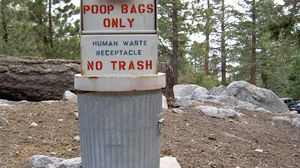Thu Apr. 7, 2011 3:00 AM PDT
Like all the houses on this block of southern Los Angeles, education reformer Oralia Velasquez's bungalow has bars on the windows and doors. I ring her doorbell one night as her neighbors—men in blue uniform shirts, kids carrying soccer balls—enter a few of the pastel houses that line the street, greeted by barking dogs and the wafting smell of dinner. We sit near family photos and statues of the Virgin de Guadalupe and discuss the complex national education debate playing out now at her daughter's elementary school.
Until the nation's first "parent trigger" law passed in California, news coverage of Compton was often reduced to gang violence and drive-by shootings. But the flatlands are also dotted with graceful, dilapidated homes: reminders of a golden era when Compton held middle-class union jobs in the auto, steel, and rubber industries. Like Detroit, the death of industry left blight in its wake, and today there are more liquor, party-supply, and 99-cent stores here than parks, playgrounds, or libraries. Fewer than 1 in 10 residents have college degrees. School dropout rates are high. School test scores are among the lowest in California.
So when someone from a nonprofit calledParent Revolution knocked on Velasquez's door last fall to talk about "the possibility of change" and how California's newly-passed "Parent Empowerment" law could help Amie, her fifth-grade daughter, learn to read better at McKinley Elementary School, she was sold. She's been hearing about "change" from the school district since she was a teenager; why not try a charter school run by the Celerity Group, the operator Parent Revolution suggested, instead? "Whenever I tried talking to previous [McKinley] teachers about Amie's struggles, they'd say, 'She is fine. She is well behaved.' But I'm not worried about her behavior. I want her to get high grades and go to college," she tells me. Aware that only one in five charters succeed, she visited one in person. "The atmosphere at Celerity is totally different. Everyone said good morning to me.
See more at: http://motherjones.com/politics/2011/03/parent-trigger-compton-NCLB


